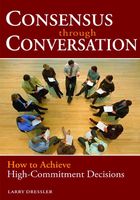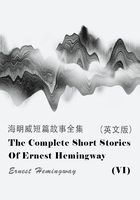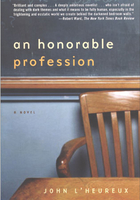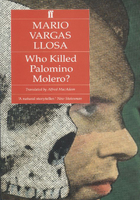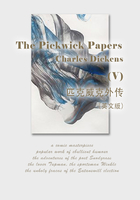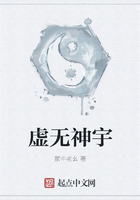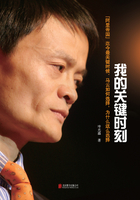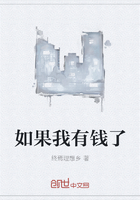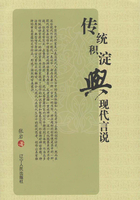Lima the Horrible
THE Lima-San Miguel streetcar went along the Avenida Salaverry, in front of the little house in La Magdalena where we came to live in those final days of 1946 or early 1947. The house still exists, faded and shabby, and even now, when I pass that way, I feel sharp pangs of anxiety. The year and a little more that I lived in it was the most agonizing one in my life. It was a two-story house. Downstairs there was a little living room, a dining room, a kitchen, and across a little patio, the maid's room. And upstairs, the bathroom and my bedroom and my parents', separated from mine by a short staircase landing.
From the moment we arrived, I felt excluded from the relationship between my mama and my papa, a man who, as the days went by, seemed to keep his distance from me. It infuriated me that they shut themselves up in their bedroom during the day, and on one pretext or another I kept going to knock on the door, until my father upbraided me, warning me not to do it again. His cold way of speaking and the steely look in his eyes is what I remember best of those first days in Lima, a city I detested from the very first moment. I was lonely, I missed my grandparents, Auntie Mamaé, Uncle Lucho, my friends from Piura. And I was bored, shut up in the house, not knowing what to do to occupy myself. Shortly after we arrived, my father and mother enrolled me in the sixth grade of the La Salle primary school, but classes didn't begin until April and it was only January. Was I going to spend the summer shut up inside the house, seeing the clanging San Miguel streetcar go by every so often?
Around the corner, in a little house identical to ours, Uncle César lived with Aunt Orieli and their sons Eduardo, Pepe, and Jorge. The first two were a little older than I was and Jorge was my age. My uncle and aunt were affectionate toward me and did their best to make me feel a part of the family, taking me one night to a Chinese restaurant on the Calle Capón—the first time I'd ever tasted Chino-Peruvian food—and my cousins took me with them to soccer games. I remember very vividly the visit to the old stadium on the Calle José Díaz, sitting in the cheap seats, watching the classic Alianza Lima-Universitario de Deportes match. Eduardo and Jorge were fans of the Alianza and Pepe of the U, and like him, I too became a rooter for this top-notch team, and soon I had, in my room, photographs of its star players: the spectacular goalie Garagate, the guard and captain Da Silva, the blond Toto Terry, "the Arrow," and above all the very famous Lolo Fernández, the great center forward, the gentleman of the field and a scorer. My cousins had a barrio, a gang of friends from the neighborhood with whom they got together in front of their house to talk and kick a soccer ball around and make shots at the goal, and they would call to me to come play with them. But I never managed to belong to their barrio, in part because, unlike my cousins, who could go outside on the street anytime and have their friends over to their house, this was forbidden me. And partly because, although Uncle César and Aunt Orieli, as well as Eduardo, Pepe, and Jorge, always made gestures to me to come closer, I kept my distance. Because they were the family of that man who was my father, not my family.
After we'd been in La Magdalena for only a short while, I burst out crying one night at dinnertime. When my father asked what was the matter, I told him I missed my grandparents and that I wanted to go back to Piura. That was the first time he had a fight with me, without hitting me, but raising his voice in a way that scared me, and looking at me with a fixed stare that from that night on I learned to associate with his fits of rage. Up until then I had been jealous of him, because he had stolen my mama from me, but from that day on I began to be afraid of him. He sent me up to bed and a little while later, having already climbed into bed, I heard him reproaching my mother for having brought me up as a flighty little boy, and making extremely cruel remarks about the Llosa family.
From then on, every time we were alone, I began to torment my mother for having brought me to live with him, and demand that we escape together to Piura. She tried to calm me down, told me to be patient, to do my best to win my papas affection, for he found me hostile and resented this. I shouted back at her that that man didn't matter to me, that I didn't love him and never would, because the people I loved were my aunts and uncles and my grandfather and grandmother. Those scenes exasperated her and made her cry.
Across from our house, on the Avenida Salaverry, there was a bookstore in a garage. It sold books and magazines for children and I spent every bit of my pocket money buying Penecas, Billikens, and an El Gráfico, an Argentine sports magazine with nice illustrations in color along with whatever books I could, by Salgari, Karl May, and above all Jules Verne; Verne's Michael Strogoff, or The Courier of the Czar and Around the World in Eighty Days had set me to dreaming of exotic countries and lives that were out of the ordinary. I never had enough pocket money to buy everything I wanted to, and the bookstore owner, a little man with a beard and all bent over, sometimes lent me a magazine or a book of adventures, on condition that I bring it back all in one piece within twenty-four hours. In those first long and gloomy months in Lima, in 1947, reading was my escape from that loneliness I suddenly found myself lost in, after having lived surrounded by relatives and friends, accustomed to their pleasing me in every possible way and looking on my bad behavior as if it were a joke. In those months I grew used to fantasizing and to dreaming, to seeking in my imagination, which those magazines and little storybooks aroused, an alternative life to the one I had, imprisoned and solitary. If I already had had the seeds of a storyteller within me, they began to take firm root in this stage, and if I didn't have them, they must have been planted then and there and begun to send out their first shoots.
Worse than not ever going out and spending hours on end in my room was a new sensation, an experience that during those months took possession of me and from then on was my companion: fear. Fear that that man would come home from the office with that paleness, those dark circles under his eyes, and that little swollen vein in his forehead that foretold a storm brewing, and would start insulting my mama, making her account to him for all the things she'd done in the last ten years, asking her what lewd behavior she'd gone in for while he was separated from her, and cursing out all the Llosas, one by one, grandparents, aunts and uncles, all of whom he shat on—yes, shat on—even though they were relatives of that poor weakling who was the president of the Republic, on whom, naturally, he shat as well. I felt panicked. My legs trembled. I wanted to shrink to nothing, to disappear. And when, overexcited by his own fit of rage, he sometimes flung himself at my mother to hit her, I wanted to die for real, because even dying seemed preferable to the fear I felt.
He gave me a beating too, every so often. The first time was on a Sunday, as Mass let out at the parish church in La Magdalena. For some reason I was being punished and was not to leave the house, but I had supposed that the punishment did not include missing Mass, and with my mama's permission, I went to church. As I came out, amid the crowd of people, I saw the blue Ford, at the foot of the steps. And I saw him, standing motionless in the street, waiting for me. By the look on his face, I knew what was going to happen. Or perhaps I didn't, for it was toward the very beginning and I still didn't know him. I may have imagined that, as my uncles had sometimes done when they couldn't stand my misbehavior any longer, he would cuff me on the head or pull my ears and five minutes later the whole thing would be forgotten. Without a word, he gave me such a hard slap on the face that it threw me to the ground; he hit me again and then pushed me into the car, where he began to say those terrible dirty words that made me suffer as much as his blows. And, once we got back home, as he forced me to beg his pardon, he went on beating me, as he warned me that he was going to straighten me out, to make a little man of me, because he wouldn't allow his son to be the sissy the Llosas had raised.
Then, along with the terror, he made me feel hatred. The word is cruel and it seemed so to me too, at that time, and all of a sudden, at night, when, huddled in my bed, hearing him shout at my mother and insult her, I wanted all the misfortunes in the world to happen to him—for Uncle Juan, Uncle Lucho, Uncle Pedro, and Uncle Jorge to ambush him and give him a thrashing someday, for instance. I was overcome with fear, because hating one's own father was surely a mortal sin, for which God would punish me. At La Salle, there was confession every morning and I frequently made confession; my conscience was always sullied by that fault, hating my father and wanting him to die so that my mama and I could again have the life we'd had before. I approached the confessional with my face burning with shame for having to repeat the same sin every time.
Neither in Bolivia nor in Piura had I been very pious, one of those sanctimonious little prigs that abounded among my schoolmates at La Salle and at the Salesian Brothers' school, but in this first period in Lima I came close to being one, even though for bad reasons, since that was a discreet way of resisting my papa. He made fun of the religious hypocrites that the Llosas were, of that pantywaist habit they had inculcated in me of crossing myself when I passed in front of a church and of that custom of Catholics to kneel before those men in skirts: priests. He said that in order for him to be on good terms with God he didn't need intermediaries, and needed even less lazy, parasitical ones in women's skirts. But even though he ragged us a lot about how devout my mama and I were, he didn't forbid us to go to Mass, perhaps because he suspected that, even though she obeyed his every order and prohibition, she would not have respected that one: her faith in God and in the Catholic Church was stronger than the passion she felt for him. Although who knows? My mother's love for my father, as masochistic and tortured as it always seemed to me, had that excessive and transgressive nature of great love-passions that do not hesitate to defy heaven and even pay the price of going to hell in order to prevail. At any event, he allowed us to go to Mass and sometimes—I suppose it was because of his inordinate jealousy—he went with us himself. He remained standing throughout the entire Mass, without crossing himself or kneeling during the consecration. I, on the other hand, did so, and prayed with fervor, joining my hands and half-closing my eyes. And I took communion as often as I could. These demonstrations were a way of opposing his authority and, perhaps, of annoying him.
But it was also a matter of something more indirect and barely conscious, because the fear that I had of him was too great for me to risk deliberately provoking those storming rages that turned into the nightmare of my childhood. My manifestations of rebellion, if they can be called that, were remote and cowardly; they were contrived in my imagination, safe from his gaze, when, in my bed, in the dark, I invented evil deeds against him, or acted them out with attitudes and gestures imperceptible to anyone but myself. For example, not kissing him ever again after the afternoon I first met him, in the Hotel de Turistas in Piura. In the little house in La Magdalena, I kissed my mama and merely said good night to him and ran upstairs to bed, frightened of my daring in the beginning, afraid he'd call me back, rivet his motionless gaze on me and with his knife-sharp voice ask me why I hadn't kissed him as well. But he didn't, doubtless because the block was as filled with stubborn pride as the chip that had come off it.
We lived in constant tension. I had the presentiment that something dreadful was about to happen at any moment, a terrible catastrophe, that in one of his fits of rage he was going to kill my mama or me or both of us. It was the most abnormal house in the world. There was never a single visitor, we never ever went out to visit anybody. We didn't even go to Uncle César and Aunt Orieli's, because my father abhorred social life. When we were alone and I began to throw it up to my mama that the reason she had become reconciled with him was so that we'd die of fear, she tried to persuade me that my papa wasn't so bad. He had his virtues. He never drank a drop of alcohol, he didn't smoke, he never went out on the town, he was so polite and such a hard worker. Weren't those great virtues? I told her that it would have been better if he got dead drunk, if he liked to live it up, because that way he'd be a more normal man, and she and I could go out together and I could have friends and invite them to my house and go to play at theirs.
After a few months in La Magdalena, the relationship with my cousins Eduardo, Pepe, and Jorge came to an abrupt end, after a family quarrel that was to keep my papa and his brother César apart for many years. I don't remember the details, but I do remember that Uncle César came to the house with his three sons and invited me to go see a soccer match. My papa wasn't home, and having learned to be prudent, I told my uncle that I didn't dare go without having first asked my father for his permission. But Uncle César said he'd explain about the match later. When we got back, after dark, my father was waiting for us in the street outside Uncle César's front door. And Aunt Orieli was at the window, with an alarmed expression, as if to warn us of something. I still remember the terrible set-to, the way my father screamed at poor Uncle César, who drew back in bewilderment, trying to explain, and my own terror, as my father kicked me all the way home.
When he beat me, I went off the deep end, and terror many times made me humble myself before him and beg his pardon with my hands joined. But that didn't calm him down. And he went on hitting me, screaming and threatening to put me in the army as a private as soon as I was old enough to be a recruit, so that I'd be set on the right path. When the whole scene was over and done with, and he could lock me in my room, it was not the blows, but rage and disgust with myself for having been so afraid of him and having humbled myself before him in that way, that made me spend a sleepless night, weeping in silence.
From that day on I was forbidden to go back to my Uncle César and Aunt Orieli's and to be with my cousins. I was completely alone until the summer of 1947 was over and I'd turned eleven. With the classes at La Salle, things became better. For several hours a day I was outside the house. The blue bus from the school picked me up on the corner, at seven-thirty in the morning, brought me back at noon, picked me up again at one-thirty, and brought me back to La Magdalena at five. The trip along the long Avenida Brasil to Bre?a, picking up schoolboys and leaving them off, was a liberation from being shut up at home and I was overjoyed. Brother Leoncio, our sixth-grade teacher, a ruddy-faced Frenchman of around sixty, rather bad-tempered, with rumpled white hair, a thick lock of which kept constantly falling over his forehead and which he tossed back with equine movements of his head, made us learn poems by Fray Luis de León by heart. I soon got over the inevitable embarrassment of being a newcomer in a class of boys who had been together for several years now, and I made good friends at La Salle. Some lasted longer than the three years that I was a pupil there, among them José Miguel Oviedo, my desk mate, who later on would be the first literary critic to write a book about me.
But despite these friends, and a few good teachers as well, my memory of the years at La Salle was clouded by the presence of my father, whose overwhelming shadow grew larger and larger, dogged my footsteps, and appeared to intrude on all my activities and spoil them. Real life at school is one of games and rites; it is not lived during classes but before and after them, in corners where friends get together, in private houses when they seek each other out and meet to plan the matinees or the parties they'll all go to or the pranks they'll play; parallel to classes, these make up the profound education of a boy, the enchanting adventure of childhood. I had had that in Bolivia and in Piura and now that I no longer had it, my existence was one of nostalgia for that period, full of envy toward those schoolmates at La Salle—like Perro Martínez, or Perales, or Vieja Zanelli, or Flaco Ramos—who could stay after classes to play soccer on the school field, visit each other's houses, and go to the serials at the neighborhood movie theaters even though it wasn't Sunday. I had to go back home once the day's classes were over and shut myself up in my room to do my homework. And when it occurred to one of the boys at school to invite me to have tea or go to his house on Sunday after Mass, to have lunch and go to the matinee, I had to invent all sorts of excuses, because how was I going to dare to ask my father for permission to do things like that?
I went back to La Magdalena and pleaded with my mother to give me my dinner early so that I might be in bed before he got home and thereby manage not to see him until the next day. Often, when I was still not finished eating, I would hear the blue Ford braking outside the door, and go scurrying upstairs and dive into bed with all my clothes on, covering even my head with the sheet. I kept hoping that they were eating or listening on Radio Central to Teresita Arce's program, "La Chola Purificatión Chauca" ("The Mestiza Purification Chauca"), which made him roar with laughter, so that I could get out of bed on tiptoe and put my pajamas on.
To think that Uncle Juan, Aunt Laura, and my cousins Nancy and Gladys, and my Uncle Jorge and Aunt Gaby, and Uncle Pedro lived in Lima and that we couldn't go see them because of my papa's antipathy for the Llosa family embittered me as much as being subjected to his authority. My mama tried to make me understand, with reasons I didn't even hear: "He's the way he is, we have to please him if we want to lead a joyful life in peace and quiet." Why did he forbid us to see my aunts and uncles, my cousins? When he wasn't around, when I was alone with my mother, I regained my sense of security and again felt free to engage in the impertinent behavior that, before, my grandparents and Mamaé had indulgently tolerated. My scenes demanding that we run away together to a place where he could never find us must have made her life much more difficult. One day, in desperation, I even went so far as to threaten that, if we didn't leave, I would tell my papa that in Piura the Spaniard whose name was Azcárate, the one who tried to buy me off by taking me to see a boxing championship bout, had visited her in the prefect's house. She began to cry and I felt like a miserable wretch.
Until one day we made our escape. I don't remember which one of the fights—although using that word to describe those scenes in which he shouted, insulted, and lashed out while my mother wept or listened to him without a word is an exaggeration—made her decide to take the great step. Perhaps it was that episode that lingers in my memory as one of the worst of all. It was at night and we were coming home from somewhere, in the blue Ford. My mama was recounting something and suddenly mentioned a lady from Arequipa named Elsa. "Elsa?" he asked. "Elsa who?" I started to tremble. "Yes, that Elsa," my mother stammered and tried to change the subject. "The number-one whore in person," he hissed. He fell silent for some time and suddenly I heard my mother cry out. He had pinched her so hard on the leg that a large purple bruise formed immediately. She showed it to me later, saying that she couldn't stand any more. "Let's leave, Mama, let's leave once and for all, let's run away."
We waited until he'd left for the office, and taking with us only a few things that we could carry by hand, we went by taxi to Miraflores, to the Avenida 28 de Julio, where Uncle Jorge and Aunt Gaby lived, and also Uncle Pedro, still a bachelor, who was finishing his medical training that year. It was exciting to see my aunts and uncles again and to be in this neighborhood that was so pretty, with tree-lined streets and little houses that had well-cared-for gardens. Above all, it was marvelous to feel that I was with my family once more, far from that man, and to know that I would never again hear him or see him or feel afraid. Uncle Jorge and Aunt Gaby's house was small, and they had two children, Silvia and Jorgito, who were still hardly older than toddlers, but we all fit in somehow—I slept in an armchair—and my happiness knew no bounds. What would happen to us now? My mama and my aunt and uncle held long conversations which I was not allowed to participate in. In any event, I didn't have words enough to thank God, the Virgin, and that Lord of Limpias to whom Granny Carmen was so devoted, for having freed us from that man.
A few days later, when classes were over, just as I was about to climb into the La Salle school bus that took the pupils to San Isidro and Miraflores, my heart sank: there he was. "Don't be afraid," he said to me. "I'm not going to do anything to you. Come with me." I noticed that he looked very pale and had big dark circles under his eyes, as though he hadn't had any sleep for days. In the car, talking to me in a friendly way, he explained that we'd go pick up my clothes and my mama's and that then he'd take me to Miraflores. I was certain that that affable manner was a hidden trap and that the moment we arrived at the house on the Avenida Salaverry he would beat me. But he didn't. He had already packed part of our clothes in suitcases and I had to help him put the rest in some sacks and, when those gave out, in a blue blanket, which we tied together by the corners. As we were doing that, I, with my soul hanging by a thread, constantly fearing that at any moment he would regret allowing me to leave, noted, in surprise, that he had removed many of the photos that my mama kept on her night table, thereby eliminating her and me, and that he had stuck pins in others. When we had finally finished packing everything, we brought it all down to the blue Ford and took off. I couldn't believe that it would be so easy, that he would act in such an understanding way. In Miraflores, in front of Uncle Jorge and Aunt Gaby's, he wouldn't let me call the maid to unload the things. He left them outside, on the tree-lined sidewalk, and the blanket came undone and clothes and various objects spilled out over the lawn. My aunt and uncle remarked afterward that with a spectacle like that, the whole neighborhood had had an eyeful of the family's dirty linen.
A few days later, when I came back for lunch, I noticed something strange about the expression on the faces of Uncle Jorge and Aunt Gaby. What had happened? Where was my mama? They passed the news on to me tactfully, as was their habit, aware that it would be a tremendous disappointment for me. My mama and papa had made up and my mama had gone back to him. And that afternoon, when I got out of school, instead of going to Miraflores, I too was to go to the Avenida Salaverry. My world came tumbling down. How could she do such a thing? Was my mama too betraying me?
At the time I was unable to understand it, only suffer it, and I emerged from each of these escapes of ours and my parents' later reconciliations more embittered, feeling that life was full of sudden shocks, without any compensation. Why did my mother make up with him every time, knowing full well that, after having calmed down for a few days or weeks, he would begin his physical violence and his insults once again, on the slightest pretext? She did so because, despite everything, she loved him with that obstinacy that was one of the traits of her character (one that I would inherit from her) and because he was the husband that God had given her—and a woman like her could have only one husband till the end of time, even though he mistreated her and even though she had a vague semi-definite divorce decree—and also because, despite her having worked for Grace Lines in Cochabamba and in Piura, my mother had been brought up to have a husband, to be a housewife, and so she felt incapable of earning a living for herself and for her son with her own earnings alone. She did it because she felt ashamed that she and I were continuing to be supported by my grandparents, who weren't all that well off—Grandpa had never been able to put money aside with that tribe on his back—or else we would one day come to be supported by my aunt and uncle, who were trying their best to make their way financially in Lima. I know that now, but when I was eleven or twelve years old I didn't know it, and even if I had, I wouldn't have understood. The only thing I knew and understood was that, every time my mother and father took up with each other again, I had to go back to being imprisoned, to loneliness and fear, and this was gradually filling my heart with bitterness toward my mother as well, with whom, from that time on, I was never again as close as I had been before I met my father.
Between 1947 and 1949 we made our escape a number of times, at least half a dozen, always to the house of Uncle Jorge and Aunt Gaby or to Juan and Laura's, also in Miraflores, and each time, within a few days, the much-feared reconciliation came about. With the distance of the years, how comical those escapes, hidden refuges, tearful receptions, those makeshift beds set up for us in the living rooms or dining rooms of my aunts and uncles seem. There was always that lugging of suitcases and sacks, the goings and comings, the very embarrassing explanations at La Salle, to the Brothers and to my schoolmates, of why, all of a sudden, I would be taking the Miraflores school bus instead of the La Magdalena one and then, after a while, the La Magdalena bus once more. Had I moved from one house to another again, or hadn't I? Because nobody moved back and forth from one house to another every so often the way we did.
One day—it was summer, so it must have been shortly after our arrival in Lima—my papa took me alone with him in the car and we picked up two boys on a street corner. He introduced me to them: "They're your brothers." The older one, a year younger than I was, was named Enrique, and the other one, two years younger, Ernesto. The latter had blond hair and such light blue eyes that anybody would have taken him for a little gringo. All three of us were embarrassed and didn't know what to do. My papa took us to the beach at Agua Dulce, rented an awning, sat down in the shade, and sent us to play in the sand and take a dip in the ocean. Little by little we began to feel closer to each other. They were students at the Colegio San Andrés and spoke English. Wasn't San Andrés a Protestant school? I didn't dare ask them. Afterward, when we were alone, my mama told me that, after separating from her, my papa had married a German lady and that Enrique and Ernesto were the sons of that marriage. But that he had separated from his gringa wife some years before, because she too had a testy temperament and couldn't stand his bad moods. I didn't see my brothers again for quite some time. Until, during one of those periodic escapes—this time we had taken refuge at Aunt Lala and Uncle Juan's—my papa came to La Salle for me when school let out. Like the time before, he made me get into the blue Ford. He looked very stern and I was terrified. "The Llosas are plotting to send you abroad," he said to me. "Taking advantage of their family ties with the president. They're going to have me to contend with and we'll see who wins." Instead of going to La Magdalena, we went to Jesús María, where he stopped in front of a group of little red brick houses, made me get out of the car, knocked, and we went in. There were my brothers. And their mama, a blond lady, who offered me a cup of tea. "You stay here until I arrange matters," my papa said. And he went away.
I was there for two days, without going to school, convinced that I would never see my mama again. He had kidnapped me and this would be my house from then on. They had given me one of my brothers' beds and the two of them shared the other one. At night they heard me crying and got up, turned the light on, and tried to console me. But I went on crying, until the lady of the house also appeared and tried to calm me down. Two days later my papa came to get me. There had been another reconciliation and my mama was waiting for me in the little house in La Magdalena. Then she told me that, in fact, she had thought of asking the president for a job in a Peruvian consulate somewhere abroad, and that my papa had found out. Wasn't the fact that he had kidnapped me a proof that he loved me? When my mama tried to convince me that he loved me or that I should love him, since, in spite of everything, he was my papa, I felt even more bitter toward her than I did because of their periodic making up with each other.
I believe I saw my brothers only a couple of times more in that year, and always for only a few hours. The following year, they left with their mother for Los Angeles, where she and Ernesto—who goes by the name of Ernie now, since he's an American citizen and a prosperous attorney—still live. Enrique began to suffer from leukemia when he was in school and suffered a painful death. He came back to Lima for a few days, shortly before he died. I went to see him and could scarcely recognize, in that fragile little figure racked with disease, the handsome, sporting boy of the photographs that he used to send to Lima and that my papa sometimes showed us.
During the time he kept me confined at the gringa's (as my mother and I called her), my papa had turned up without warning at my Uncle Juan's. He didn't come in. He told the maid that he wanted to talk with my uncle and that he would wait for him in the car. My father had not been on speaking terms with anybody in the family ever since that long-ago day when he abandoned my mother at the Arequipa airport, at the end of 1935. Uncle Juan told me some time later about their meeting, straight out of a movie. My father was sitting at the wheel of the blue Ford waiting for him and when Uncle Juan got in, he warned him: "I'm armed and ready for anything." So as not to leave any doubt in my uncle's mind, he showed him the revolver he was carrying in his pocket. He said that if the Llosas, taking advantage of their relationship with the president, tried to send me abroad, he would take reprisals against the family. Then he railed against the upbringing they had given me, spoiling me and drumming it into my head that I should hate him and fostering in me fancy-pants ideas like saying that when I was grown up I'd be a bullfighter and a poet; his name was at stake and he wouldn't have a son who was a pansy. Following this semi-hysterical peroration, in which Uncle Juan couldn't get so much as a word in edgewise, he noted that as long as the Llosas refused to give him any guarantees that my mother wouldn't go off abroad with me, the family wouldn't see my face again. And he drove off.
That revolver he showed Uncle Juan was an emblematic object of my childhood and adolescence, the symbol of the relationship I had with my father as long as I lived with him. I heard him shoot it, one night, in the little house in La Perla, but I don't know if I ever managed to see the revolver with my own eyes. It is quite true that I saw it constantly, in my nightmares and in my moments of terror, and every time I heard my father shout and threaten my mama, it seemed to me that, in all truth, what he said he was going to do, he really and truly would do: take out that revolver, shoot five times, and kill her and then me.
These abortive escapes nonetheless eventuated in my having a counterweight to the life I led on the Avenida Salaverry, and, later, in La Perla: being able to spend the weekends in Miraflores, with my aunts and uncles. This came about after one of the times we ran away; in the course of the reconciliation, my mother managed to get my papa to allow me, when Saturday classes were over, to go directly from La Salle to Aunt Lala and Uncle Juan's. I went back home on Mondays, after the morning classes. That day and a half a week, in Miraflores, far from his prying eyes, living the normal life of other youngsters my age, became the most important thing in my life, the objective fondly imagined all week long, and that Saturday afternoon and Sunday in Miraflores an experience that filled me with courage and happy images, enabling me to resist the horrendous five remaining days.
I couldn't go to Miraflores every weekend, only when I got the grades E (excellent) or O (highest in class) on my report card. If my grades were D (unsatisfactory) or M (bad), I had to go back home to spend the weekend shut up inside. And then there were, besides, the punishments that I received for some other reason, and which, once my father discovered that what I hoped for most in the world was to spend those weekends a long way away from him, consisted of: "This week you're not going to Miraflores." For the most part, though, the years 1948 and 1949 and the summer of 1950 were divided up for me like this: Mondays to Fridays in La Magdalena or in La Perla, then Saturdays and Sundays in the Diego Ferré barrio of Miraflores.
A barrio was a parallel family, a group of youngsters of the same age with whom one talked of sports or played soccer—fútbol—or a version of it on a smaller scale—fulbito. With whom one went swimming at the pool and bodysurfing at the beaches of Miraflores—the Club Regatas or La Herradura—and took walks around the park after eleven o'clock Mass, went to the matinee at the Leuro or Ricardo Palma movie theater, and finally went for a stroll through the Salazar gardens. And with whom, as one grew older, one learned to smoke, dance, and make girls fall in love—the ones who, little by little, got permission from their families to come stand in the doorways of the houses to talk to the boys and organize, on Saturday nights, parties in which, dancing a bolero—preferably "Me gustas," by Leo Marino—the boys fell for the girls and announced to them that they were templados (in love). The girls would say, "I'm going to think it over," or "All right," or "I don't want to have a boyfriend yet because my mama won't let me." If the answer was "All right," one now had a girlfriend. One could dance cheek to cheek with her at parties, go to the Sunday matinee together, and kiss each other in the dark. And also, walk hand in hand after having an ice cream at the Crem Rica on the Avenida Larco, and ask her to go with you to see the sun set on the ocean from the Salazar gardens while you made a wish. Aunt Lala and Uncle Juan lived in a little white two-story house, in the heart of one of the most famous districts in Miraflores, and Nancy and Gladys belonged to the youngest generation of the barrio, which also had its old-timers, who were fifteen, eighteen, or twenty years old, and thanks to my cousins I joined it. I owe all my good memories between the ages of eleven and fourteen to my barrio. It was called the Happy Barrio at one time, but it changed its name when the newspapers began to call the Jirón Huatica de La Victoria (the street where the prostitutes were) by that name, and it became the Diego Ferré or the Colón barrio, because our main hangout was at the intersection of those two streets.
Gladys and I had our birthdays on the same day, and Aunt Lala and Uncle Juan gave a party with boys and girls of the barrio on March 28, 1948. I remember my surprise when I came in and saw that there were couples dancing and that my two cousins also knew how to dance. And that the birthday party was being held not to play games but to put records on, to hear music, and to serve as a "mixer" for the boys and girls. All my aunts and uncles were there and they introduced me to some youngsters with whom I would be great friends later on—Tico, Coco, Luchín, Mario, Luquen, Victor, Emilio, el Chino—and they even made me ask Teresita to dance. I was dying of embarrassment and felt like a robot, not knowing what to do with my hands and feet. But afterward I danced with my cousins and other girls and from that day on I began to dream romantic dreams of being in love with Teresita. She was my first sweetheart. Inge was the second, and Helena the third. I made a very formal declaration of love to the three of them. We boys rehearsed the declaration beforehand, among ourselves, and each of them suggested words or gestures so that all would not be lost when one fell for a girl. Some of them preferred to declare their love at the movies, taking advantage of the darkness at the matinee and making the declaration coincide with some romantic moment of the film, which they presumed had a contagious effect. I tried that method, once, with Maritza, a very pretty girl with dark black hair and very pale skin, and the result was farcical. Because when, after hesitating for a long time, I dared to murmur in her ear the time-hallowed words—"I like you a whole lot; I'm in love with you. Would you be my girl?"—she turned to look at me, weeping like a Mary Magdalene. Totally absorbed in the film, she had barely heard me and asked: "What's that? What did you say?" Incapable of taking up again where I had left off, all I managed to do was to stammer what a sad movie it was, wasn't it?
But I made my declarations to Tere, Inge, and Helena in an orthodox way, dancing a bolero at a Saturday night party, and I wrote love poems to all three of them that I never showed them. I dreamed about them all week, counting how many days were left before I saw them again and praying that there would be a party that Saturday so that I might dance cheek to cheek with my sweetheart. At the Sunday matinee I grabbed their hand in the dark, but didn't dare kiss them. I only kissed them when we played spin the bottle, or forfeits, when my friends from the barrio, who knew that we were sweethearts, sent us away as a punishment if we lost at the game, to give each other three, four, and even ten kisses. But they were kisses on the cheek and that, according to Luchín, the one who wanted to be considered a grownup, didn't count, because a kiss on the cheek wasn't a smacker. Smackers were given on the mouth. But at that time couples from Miraflores twelve or thirteen years old were still more or less innocent little archangels and not many of them dared give each other real smackers. I, naturally, didn't dare. I fell in love the way calves fall in love with the moon—a pretty expression that we used to use to define boys who were enamored of a girl—but I was abnormally timid with the girls from Miraflores.
Spending the weekend in Miraflores was an adventure in freedom, the possibility of a thousand entertaining and exciting things. To go to the Club Terrazas to play fulbito or have a swim in the pool, from which great swimmers had come. Among all sports—I liked all of them—the one I was best at was swimming. I came to master the crawl quite well and one of my frustrations was not having been able to train in the academy directed by Walter Ledgard, the Sorcerer, as did some Miraflores boys my age who later became international champions, Ismael Merino or Rabbit Villarán for instance. I was never a very good soccer player, but my enthusiasm compensated for my lack of skill and one of the happiest days of my life was the Sunday when Toto Terry, a star from our barrio, took me to the National Stadium and had me play with the youngsters of the Universitario de Deportes against those of the Deportivo Municipal. Wasn't going out onto that enormous field, wearing the uniform of the top team, the best thing that could happen to anyone in the world? And didn't the fact that Toto Terry, the blond "Arrow" of the U, was from our barrio prove that ours was the best one in Miraflores? That was demonstrated in a series of "Olympic Games" we organized on several consecutive weekends, in which we competed with the barrio of the Calle San Martín in cycling, field and track, fulbito, and swimming races.
Carnival was the best time in the year. We went out during the day to squirt water on people, and in the afternoons, disguised as pirates, to the masked balls. There were three children's balls that weren't to be missed: the one at the park in Barranco, the one at the Club Terrazas, and the one at the Lawn Tennis Club. We brought paper streamers and squirt guns full of ether, and the group from the barrio, all dressed in identical costumes, was a large, joyful one. For one of those carnivals Dámaso Pérez Prado came with his orchestra. The mambo, recently invented in the Caribbean, was all the rage in Lima too, and contestants had even been invited to a national mambo championship in the Plaza de Acho, but the archbishop, Monsignor Guevara, forbade it, threatening to excommunicate the participants. The arrival of Pérez Prado filled the Córpac airport, and there too I was with my friends, running behind the convertible with the top down that was taking the composer of "El ruletero" and of "Mambo número cinco." greeting people right and left, to the Hotel Bolívar. Aunt Lala and Uncle Juan laughed as they watched me, almost the minute I reached the house on Diego Ferré, on Saturdays at noon, begin practicing mambo steps, all by myself, on the stairs and through the rooms, in preparation for that night's party.
Teresita and Inge were transitory sweethearts, for just a few weeks, something halfway between a children's game and puppy love, what Gide calls the harmless caracoles of love. But Helena was a serious and steady long-time sweetheart, an expression that meant a relationship of several months or perhaps even a year. She was a close friend of Nancy's, and her classmate at the Colegio La Reparación. She lived in one of a group of little ocher-colored townhouses with a common entrance, in Grimaldo del Solar, a place some distance away from Diego Ferré, in which there was also a barrio. If a stranger came to make the girls of one's own neighborhood fall in love with him it was not looked upon with favor; it constituted a violation of one's territory. But I was very much in love with Helena, and as soon as I reached Miraflores, I ran to the townhouse in Grimaldo del Solar to see her, if only from afar, in the window of her house. I went with Luchín and my namesake Mario, who had received declarations of love from Ilse and Lucy, neighbors of Helena's. If luck was with us, we could talk with them for a moment in the doorway of their houses. But the kids in that neighborhood moved closer to hurl insults or throw stones at us, and on one of those afternoons we were obliged to come to blows with them, because they tried to kick us out of their turf.
Helena was blond, with bright blue eyes, very pretty teeth, and a very joyful laugh. I missed her a lot in the desolation and loneliness of La Perla, in that isolated little house in the middle of a vast stretch of open countryside to which we moved in 1948. My father, besides working for the International News Service, bought lots, built houses, and then sold them; for several years that was an important source of income for him. I say this with some hesitation because his economic situation, like a fair part of his life, was a mystery to me. Did he earn good money? Did he save much of it? He lived an extremely abstemious life. He never went out to a restaurant, much less, needless to say, to those cabarets—the Caba?a, the Embassy, or the Bolívar Grill—to which my aunt and uncle sometimes went to dance on Saturday nights. In all likelihood he and my mama went to the movies once in a while, but I do not recall their ever doing that either, or perhaps they did so on the weekends that I spent in Miraflores. From Monday to Friday he came home from the office between seven and eight, and after dinner he sat down to listen to the radio, for an hour or two, before going to bed. I think that the programs of Teresita Arce's comic series, "La Chola Purificatión Chauca," on Radio Central, ones he always laughed at, were the only diversion in that house. And my mama and I laughed too, in unison with our lord and master. He himself had built the little house in La Perla, with the help of a construction foreman.
La Perla, at the end of the 1940s, was a gigantic empty lot. Only on the Avenida de Las Palmeras and on the Avenida Progreso were there any buildings. The rest of the area, between that square of streets and the steep cliff overlooking the sea, consisted of blocks and blocks laid out as straight as a string, with street lighting and sidewalks but not a single house. Ours was one of the first in that district and in the year and a half or two that we were there, we lived in a wilderness. Toward Bellavista, a few blocks away, there was a settlement with one of those grocery stores that in Peru are still called chinos—Chinamen's stores—and at the other end, close to the sea, the police station. My mama was afraid of being left alone there all day long, because of the isolation of the place. And one night, in fact, footsteps were heard on the roof and my father went out to find the thief. I woke up hearing shouting and it was then that I heard the two shots in the air of the mythical revolver, which he fired so as to scare the intruder off. At the time Mamaé was already living with us, for I remember the little old lady's frightened face, as she stood in her nightdress in the cold hallway with black and white tiles that separated our rooms.
If in the little house on the Avenida Salaverry I lacked friends, in La Perla I lived the life of a fungus. I went to and from La Salle in the little interurban Lima–Callao minibus that I took on the Avenida Progreso, and got off at the Avenida Venezuela, from where it was several blocks' walk to the school. They enrolled me as a half-boarder, so that I had my lunch at La Salle. When I got back home to La Perla, at around five, since there was still lots of time before my father came home from work, I used to go out to the vacant lots and kick a soccer ball around as far as the police station and the cliff and come back home again, and that was my daily diversion. I'm lying: the important diversion was to think about Helena and write letters and love poems to her. To write poems was another of the secret ways of resisting my father, since I knew how much it irritated him that I wrote verses, something he associated with eccentricity, bohemia, and what could horrify him most: being queer. I suppose that, for him, if it was necessary to write verses, something that remained completely unproved—in the house there was not a single book, either of poetry or of prose, outside of the ones that belonged to me, and I never saw him read anything else but the newspaper—it was most probably women who wrote them. That men should do such a thing disconcerted him, struck him as an extravagant way of wasting time, a pastime incompatible with wearing trousers and having balls.
For I read many verses and learned them by heart—Bécquer, Chocano, Amado Nervo, Juan de Dios Pesa, Zorrilla—and wrote them, before and after doing my homework, and sometimes I dared read them, on weekends, to Aunt Lala, Uncle Juan, or Uncle Jorge. But never to Helena, the inspiration and the ideal addressee of these rhetorical effusions. The fact that my papa could give me a dressing-down if he discovered me writing poems surrounded the writing of poetry with a dangerous aura, and that, of course, made it all the more exciting to me. My aunts and uncles were delighted that I was going out with Helenita, and the day that my mama met her, at Aunt Lala's, she was very much taken by her too: what a pretty little girl and how likable. I would often hear her regret, years later, that having been able to marry someone like Helenita, her son had instead committed all the follies he had.
Helena was my sweetheart until I entered the Leoncio Prado Military Academy, in the third year of secondary school, a few days after my fourteenth birthday. And she was also my last sweetheart—in the decorous, serious, and purely sentimental connotations of the word in that milieu in those days. (What came after that, in the amorous domain, was more complicated and less mentionable.) And because of how deeply in love with Helena I was, I dared to falsify my report card one day. My teacher in the second year of secondary school at La Salle was a layman, Ca?ón Paredes, with whom I always got along badly. And on one of those weekends he handed me my report card with an ignominious D for "unsatisfactory." And so I would have to go back home to La Perla. But the idea of not going to Miraflores, of not seeing Helena for another week, was intolerable and I left for my aunt and uncle's. Once there, I changed the D to an O for highest in class, believing that my cheating would pass unnoticed. Ca?ón Paredes discovered it, days later, and without a word to me had the principal summon my father to the school.
What happened then still fills me with shame when even without warning my unconscious brings those images back to life. After recess, standing in line to go back into the classrooms, I saw my father appear in the distance, accompanied by Brother Agustín, the principal. My father approached the line and I realized that he knew everything and that I was going to pay the price. He gave me a terrific slap on the face that silenced and electrified the dozens of boys. Then, grabbing me by one ear, he dragged me to the principal's office, where he began to beat me, in front of Brother Agustín, who tried to calm him down. I imagine that thanks to that beating the principal took pity on me and didn't expel me from the school, as my misdeed deserved. My punishment was to be forbidden to go to Miraflores for several weeks.
In October 1948, the military coup of General Odría brought down the democratic government and Uncle José Luis went into exile. My father celebrated the coup as a personal victory: the Llosas could no longer boast of having a relative who was the president of Peru. I cannot recall having ever heard talk of politics after our arrival in Lima, either in my parents' house or at my aunts and uncles', except for an isolated phrase or two in passing against the Apristas, whom all those around me seemed to regard as scoundrels (on this subject my father agreed with the Llosas). But the fall of Bustamante and the rise to power of General Odría became the object of my father's triumphant monologues celebrating the event, delivered straight to my mother's wistful face, and in those same days I heard her wonder how she could send a note "to poor José Luis and María Jesús [whom the military had banished to Argentina] without your papa finding out."
Grandpa Pedro resigned as prefect of Piura on the same day as the military coup, bundled up his tribe—Grandmother Carmen, Mamaé, Joaquín, and Orlando—and brought them to Lima. Uncle Lucho and Aunt Olga stayed in Piura. That post as prefect was the last steady job my grandfather ever had. There would then begin for him, still robust and lucid at the age of seventy-five, a long via crucis, the slow immersion in the mediocrity of routine and poverty that he never grew weary of fighting, seeking work right and left, sometimes securing, temporarily, an audit or a liquidation with which he was entrusted by a bank, or minor matters to take up with administrative agencies, which filled him with hope, got him up out of bed at dawn to get ready in a great hurry and wait impatiently for it to be time to leave for "his job" (although this might well consist merely of standing in line in some ministry to secure the official seal of some bureaucrat). Miserable and mechanical, those little jobs made him feel alive and relieved him of the torture that it was for him to live on the small monthly sums that his children slipped him. Later on—I know that it was as a protest by his body against the tremendous injustice of not finding a job when he was still able to work, of feeling condemned to a useless and parasitic life—when he had his first cerebral hemorrhage and could no longer manage to secure even those temporary assignments, the inactivity little by little drove him mad. He rushed out onto the streets, walking from one place to another, very fast, inventing tasks for himself. And my uncles tried to find some sort of work for him to do, some sort of minor business transaction for him to carry out for them, so he wouldn't feel like a useless old man.
Grandfather Pedro wasn't the sort to take his grandchildren in his arms and devour them with kisses. Children bothered him and, at times, in Bolivia, in Piura, and then later in the little houses in Lima where he lived, when his grandchildren and great-grandchildren made a great racket, he ordered them to cut it out. But he was the kindest and most generous man I have ever known and I often have recourse to the memory of him when I feel overcome with despair for the species and inclined to believe that, all things considered, humanity is nothing but trash. Not even in the very last stage of his life, a penniless old age, did he lose the moral composure that he had always had, and that, through his prolonged existence, led him to respect unfailingly certain values and rules of behavior that stemmed from a religion and principles that in his case were never frivolous or mechanical. They determined all the important acts of his life. If he had not assumed the burden of supporting all those abandoned creatures that my Granny Carmen took in, and adopting them—adopting us, since he was my real father during the first ten years of my life, who reared me and fed me—perhaps he wouldn't have reached old age pitifully poverty-stricken. But neither would he have reached that point if he had stolen, or coldly calculated his life, if he had been less decent in everything he did. I believe that his great concern in life was to go about things in such a way that Granny Carmen would not learn that what is evil and filthy is also part of existence. He was only partially successful, of course, even though his children helped him in this endeavor, but he managed to spare her many sufferings and bring her considerable relief from others that he was unable to prevent. He devoted his life to this goal and Granny Carmen knew it, and therefore in their marriage they were the happiest that a couple can be in this life, where so often the word happiness seems obscene.
They nicknamed my grandfather "Gringo" when he was young, apparently because he had blond hair. I, for my part, as far back as I can remember, see him with sparse white hair, a ruddy face, and that big nose that is a trait shared by the Llosa family, as is walking with our feet splayed apart. He knew many poems by heart, some written by others and some his own, which he taught me to memorize. That I should write verses as a small boy amused him, and that later on articles of mine should appear in the newspapers made him highly enthusiastic, and that I should reach the point of having books of mine published filled him with satisfaction. Although I am certain that it must also have alarmed him, as it did my Granny Carmen, who told me so, that my first novel, La ciudad y los perros (The Time of the Hero), which I sent them from Spain as soon as it came out, was full of dirty words. Because he was always a gentleman and gentlemen never say—much less write—dirty words.
In 1956, when Manuel Prado won the elections and took office, the brand-new minister of the interior, Jorge Fernández Stoll, summoned my grandfather to his office and asked if he would agree to be the prefect of Arequipa. I never saw my grandfather so happy. He was going to work, to stop depending on his children. He would go back to Arequipa, his beloved homeland. With great care he wrote a speech for the ceremony of taking office and read it to us, in the little dining room of the house on the Calle Porta. We applauded it. He smiled. But the minister didn't call him back or return his calls, and only much later informed him that the APRA, an ally of Prado's, had vetoed the appointment because he was related to Bustamante y Rivero. It was a very hard blow, but I never heard him blame it on anyone.
When he gave up the prefecture of Piura, he and Granny Carmen came to live in an apartment on the Avenida Dos de Mayo, in Miraflores. It was a small place and they were quite uncomfortable there. Shortly thereafter, Auntie Mamaé moved in with us, in La Perla. I don't know how my father came to agree that someone who was as vital a representative of the family that he detested should become part of his household. Perhaps what decided him was knowing that in this way my mother would have company during the long hours that he spent at the office. Mamaé stayed with us as long as we lived in La Perla.
Her real name was Elvira, and she was a cousin of Granny Carmen's. She had been left an orphan as a small child, and in the Tacna of the end of the nineteenth century she had been adopted by my great-grandparents, who brought her up like a sister to their daughter Carmen. When still an adolescent, she was engaged to a Chilean officer. As the wedding day approached—family legend has it that her bridal gown had already been made and the wedding announcements sent out—something happened, she found out about something, and broke the engagement. From that time on, until her death at the age of a hundred and four, she remained a spinster and never again became engaged. She never separated from my granny, whom she followed to Arequipa when the latter married, and then to Bolivia, to Piura, and to Lima. She brought up my mother and all my uncles, who called her Auntie Mamaé. And she also brought up my cousins and me, and even held my children and theirs in her arms. The secret of why she broke off with her fiancé—what dramatic episode made her choose spinsterhood forever after—she and Granny Carmen, the only ones who knew the details, took to their graves with them. Mamaé was always a tutelary shadow in the family, the second mama of everyone, the one who stayed up all night keeping watch over anyone who was ill and acted as babysitter and chaperone, the one who took care of the house when everyone was gone, the one who never protested or complained and the one who loved and pampered all of us. Her diversions were listening to the radio when the others did, rereading the books of her youth as long as her eyes held out, and, of course, praying and arriving punctually for Sunday Mass.
She was a great deal of company to my mother, there in La Perla, a great happiness to me to have her in the house, and also someone whose presence toned down to some degree my father's fits of fury. Every once in a while, amid those attacks accompanied by insults and blows, Mamaé would come out, a tiny little thing, dragging her feet, with her hands placed together, to implore him: "Ernesto, I beg you," "Ernesto, in the name of what you hold most dear," and he would usually make an effort and calm down.
At the end of 1948, when we had already taken the final examinations of the first year of secondary school—around the beginning or the middle of December—something happened to me at La Salle that had a delayed but decisive effect on my relations with God. These had been those of a boy who believed and practiced everything that he had been taught insofar as religion was concerned, and for whom the existence of God and the true nature of Catholicism were so evident that not even the shadow of a doubt in this respect had ever entered his head. The fact that my father made fun of the pious believers that my mother and I were only served to confirm that certainty. Wasn't it only to be expected that someone who seemed to me to be the very embodiment of cruelty, the evildoer personified, should be an unbeliever and an apostate?
I do not remember that the Brothers at La Salle overwhelmed us with catechism classes and exercises in piety. We had a course in religion—the one given us by Brother Agustín, in the second year of secondary school, was as entertaining as his lessons in universal history, and it impelled me to buy a Bible for myself—together with Sunday Mass and a few retreats during the year, but nothing that resembled those schools that were renowned for the rigor of their religious instruction, such as La Inmaculada or La Recoleta. Every so often the Brothers made us fill out questionnaires to check to see if we had felt the call of God, and I always answered no, that my vocation was to be a sailor. And in all truth, I never experienced, as some of my schoolmates did, religious crises and fears. I remember what a surprise it was, in my barrio, to see one of my friends suddenly burst into tears and sobs one night, and when Luchín and I, who were trying to calm him down, asked him what was the matter, to hear him stammer that he was weeping over how greatly men offended God.
I couldn't go get my report card, at the end of that year in 1948, for some reason or other. I went the following day. The school was empty of pupils. They handed me my report card in the principal's office and I was just leaving when Brother Leoncio, who had been our teacher the year before, appeared, cheerful and smiling. He asked me about my grades and my vacation plans. Despite his reputation as a little old grouch, who used to rap our heads with his knuckles when we behaved badly, we all loved Brother Leoncio for his picturesque appearance, his ruddy face, his unruly forelock, and his Spanish full of Gallicisms. He devoured me with questions, without giving me an opening so as to say goodbye, and all of a sudden he told me that he wanted to show me something and to come with him. He took me to the top floor of the school, where the Brothers had their rooms, a place where we students never went. He opened a door and there was his room: a small one with a bed, a clothes closet, a little worktable, and religious prints and photographs on the walls. I noticed that he was very excited, talking very fast about sin, the devil, or something like that, as he poked around in this clothes closet. I began to feel uncomfortable. Finally he took out a pile of magazines and handed them to me. The first one I opened was called Vea and was full of pictures of naked women. I felt tremendous surprise, mingled with embarrassment. I didn't dare raise my head, or answer, for still speaking in a rush and tripping over his words, Brother Leoncio had come closer to me, asking me if I was acquainted with those magazines, if my friends and I bought them and leafed through them by ourselves. And, all of a sudden, I felt his hand on my trousers fly. He was trying to open it at the same time as, clumsily, with his hand on top of my trousers, he rubbed my penis. I remember his congested face, his tremulous voice, a thread of saliva dangling from his mouth. I wasn't afraid of him, as I was of my papa. I began to shout "Let me go! Let me go!" at the top of my lungs and in an instant Brother Leoncio's face turned from beet-red to deathly pale. He opened the door for me and murmured something like "But why are you afraid?" I ran down to the street.
Poor Brother Leoncio! How embarrassed he too must have been after that episode. The next year, the last one in which I attended La Salle, when he met me in the patio his eyes avoided mine and his face showed signs of how ashamed he felt.
From that time on, I gradually stopped being interested in religion and in God. I went on attending Mass, going to confession and taking communion, and even saying prayers at night, but in a more and more mechanical way, not participating in what I was doing, and during the obligatory daily Mass at school, thinking of something else, until one day I realized that my faith was gone. I had turned into an unbeliever. I didn't dare tell anyone, but when I was by myself, I told myself, without shame or fear. Only in 1950, when I entered the Leoncio Prado Military Academy, did I dare defy the people around me with the curt remark "I'm not a believer; "I'm an atheist."
That episode with Brother Leoncio, besides making me gradually lose interest in religion, augmented the disgust I'd felt for sex ever since that afternoon down by the Piura River when my friends revealed to me how babies were made and how they came into the world. It was a disgust I hid very well, since both at La Salle and in my barrio talking about fucking was a sign of virility, a way of ceasing to be a child and becoming a man, something I wanted as much as my pals and perhaps even more than they did. But even though I too talked of fucking and boasted of having spied on a girl as she was undressing and having masturbated, things like that repelled me. And when, on occasion, in order not to make myself look bad, I engaged in them—like one afternoon, when I climbed down the cliff with half a dozen boys from the barrio to hold a masturbating contest along the beach at Miraflores, which the astronautical Luquen won—I had a lingering feeling of disgust for days afterward.
For me, then, falling in love had absolutely nothing to do with sex: what I felt for Helena was a diaphanous, disincarnate, intense, and pure sentiment. It consisted of daydreaming a great deal about her and fantasizing that we had gotten married and were traveling about in gorgeous places, of writing verses to her and imagining impassioned heroic situations, in which I saved her from dangers, rescued her from enemies, wrought vengeance on her attackers. She rewarded me with a kiss. A kiss without tonguing: we had had a discussion on the subject with the boys in the barrio, and I defended the position that one could not kiss one's sweetheart with a tongue kiss; only girls you might be able to score with, vulgar show-offs, lower-class chicks. Tongue kissing was like pawing, and who outside of the worst of degenerates was going to paw a decent girl?
But if sex revolted me, I shared, on the other hand, the passion of my friends from the barrio for being well dressed and shod and, if it had been possible, going around in the Ray-Ban sunglasses that made boys irresistible to girls. My papa never bought me clothes, but my uncles gave me the suits that had grown too small for them or were going out of style, and a tailor on the Calle Manco Cápac turned them inside out and altered them to fit me, so that I always went around well dressed. The problem was that, when the tailor turned the suits inside out, it left a visible seam down the right side of the jacket, where the handkerchief pocket had been, and I insisted each time to the tailor that he make an invisible darn to hide any trace of that pocket that might make people suspect that my suit was a hand-me-down turned inside out.
As for pocket money, Uncle Jorge and Uncle Juan, and sometimes Uncle Pedro—who after graduating had left to work in the North, as a doctor on the San Jacinto hacienda—gave me five, and then ten soles every Sunday, and with that amount I had more than enough for the matinee, the Viceroy cigarettes we bought one at a time, or to have a glass of capitán—a mixture of vermouth and pisco brandy—with the boys in the barrio before the parties on Saturday nights, at which only nonalcoholic refreshments were served. In the beginning, my papa also gave me some pocket money, but ever since I first began to go to Miraflores and receive a bit of money from my uncles, I discreetly refused to accept any from my father, saying goodbye to him very quickly on Saturday morning before he gave it to me: another of my overly subtle ways of opposing him, an idea conceived by my cowardice. He must have understood, because from around that time on, the beginning of 1948, he never gave me another centavo.
But despite these demonstrations of economic pride, in 1949 I dared—it was the one time I ever did anything like it—to ask him to have my teeth straightened. Because they stuck out, they had bothered me a lot at school, where I was called Rabbit and teased about them. I don't believe that it had mattered all that much to me before, but once I began to go to parties, to keep company with girls and to have a sweetheart, getting braces to straighten my teeth as several of my friends had done became a passionately embraced ambition. And, suddenly, the possibility came within reach. One of my friends in the barrio, Coco, was the son of a dental technician, whose specialty was none other than those braces to line up the upper and lower teeth. I talked to Coco and he to his papa, who arranged for the kindly Dr. La?as, the dentist he worked for, to give me an appointment at his office on the Jirón de la Unión, in the downtown district of Lima, and examine me. He would fit me with braces without charging me for his work; the only thing I would have to pay for was the material. My pride and my vanity battled it out for many days before I took that great step, which, at heart, I considered to be an abject surrender. But vanity won out—my voice must have trembled—and I ended up asking to be fitted with the braces.
My father said that was fine with him, that he would talk to Dr. La?as, and perhaps he did. But before Dr. La?as began the treatment, something happened, one or another of those domestic tempests or running away again with my mother to my aunt and uncle's house, and, once the crisis subsided and family unity was restored, my father didn't say anything more to me about the subject nor did I remind him of it. I was left with my rabbit's teeth, and the following year, when I entered the Leoncio Prado Military Academy, it no longer mattered to me if I was buck-toothed.

